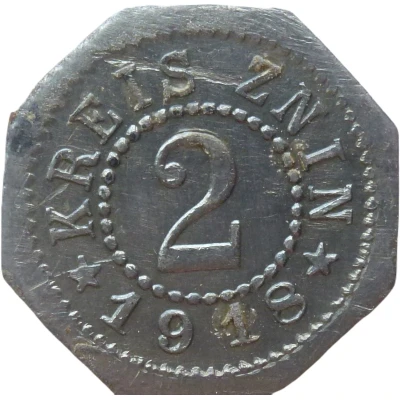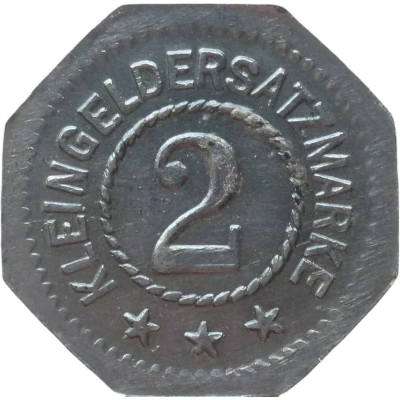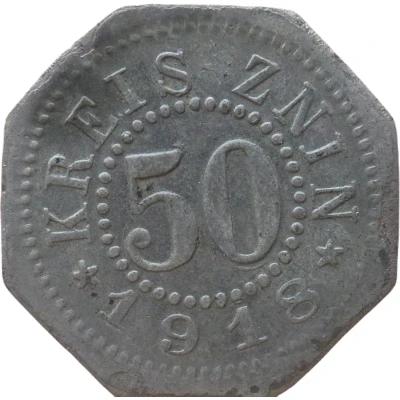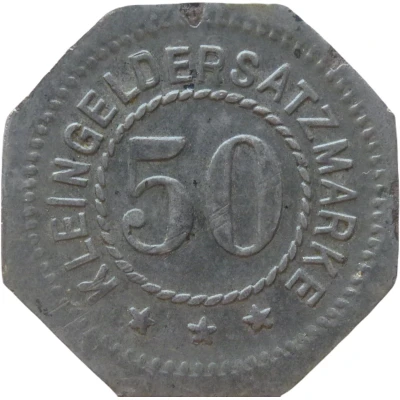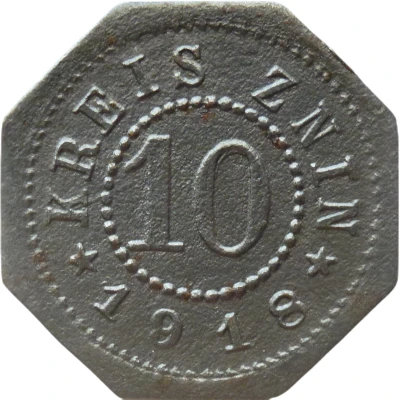
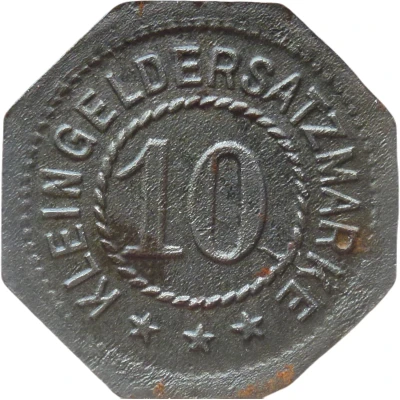

© Willem63 (CC BY-NC-SA)
10 Pfennigs - Znin
1918 year| Iron | 2.4 g | 21.0 mm |
| Issuer | District of Znin (Posen) (Prussian province of Posen) |
|---|---|
| Type | Standard circulation coin |
| Year | 1918 |
| Value | 10 Pfennigs (10 Pfennige) (0.10) |
| Currency | Mark (1914-1924) |
| Composition | Iron |
| Weight | 2.4 g |
| Diameter | 21.0 mm |
| Thickness | 1.1 mm |
| Shape | Octagonal (8-sided) |
| Technique | Milled |
| Orientation | Medal alignment ↑↑ |
| Demonetized | Yes |
| Updated | 2024-10-04 |
| Numista | N#357608 |
|---|---|
| Rarity index | 97% |
Reverse
Pearl rim, legend surrounding rope circle with denomination centered
Script: Latin
Lettering:
KLEINGELDERSATZMARKE
10
★ ★ ★
Edge
Plain
Interesting fact
The 10 Pfennigs coin from Znin, issued in 1918, is interesting because it was made of iron, which was a unusual choice of material for coins at that time. Most coins were made of copper, silver, or gold, but the use of iron was likely a result of the wartime economy and the need for alternative materials. This coin is a unique example of how the scarcity of traditional coinage metals during times of war can lead to the use of unconventional materials in currency production.
